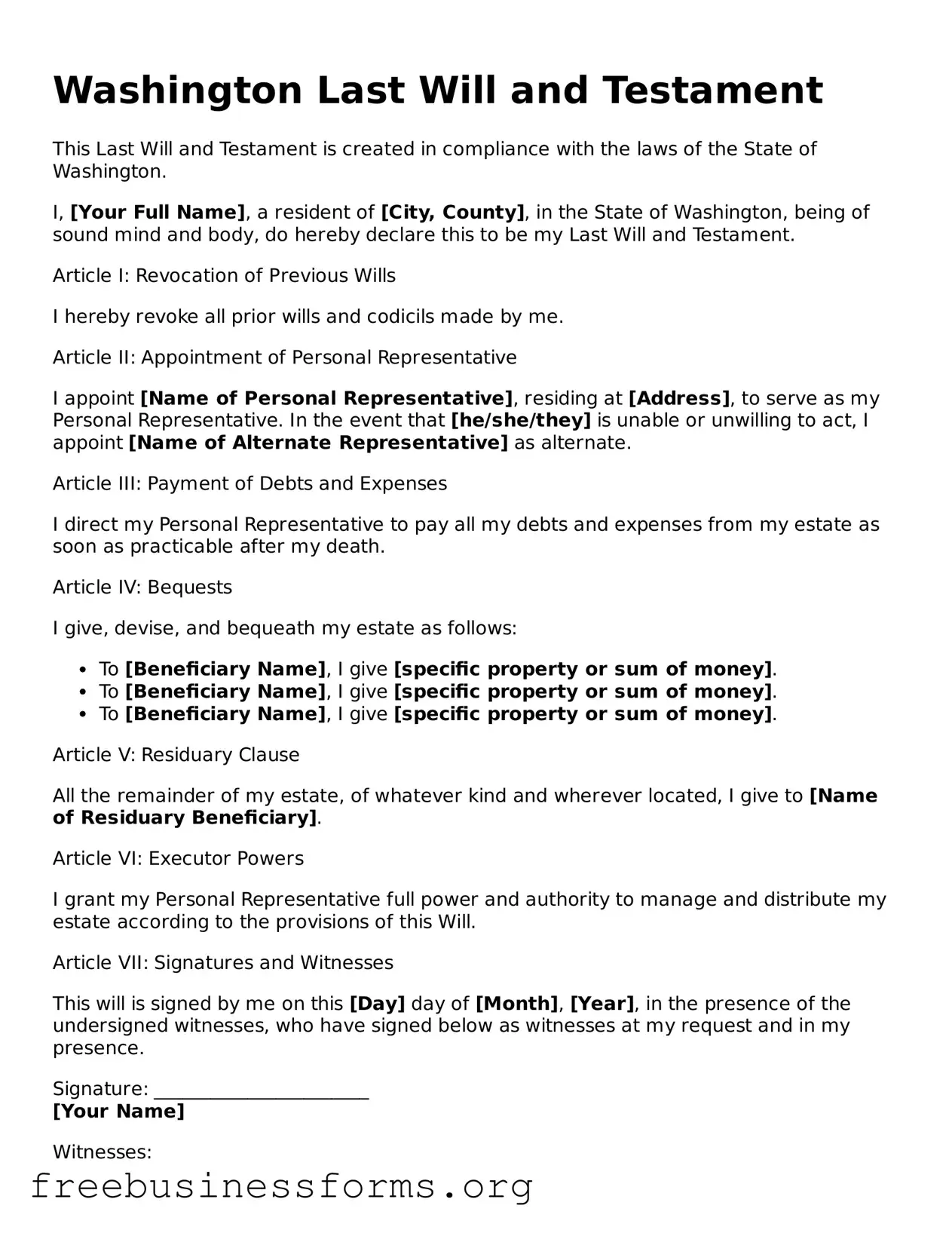Blank Last Will and Testament Template for Washington
A Washington Last Will and Testament form is a legal document that outlines how an individual's assets and affairs will be managed after their passing. This form allows you to specify beneficiaries, appoint an executor, and express your final wishes. Having a valid will in place ensures that your desires are honored and can provide peace of mind for you and your loved ones.
Open Form Here

Blank Last Will and Testament Template for Washington
Open Form Here

Open Form Here
or
↓ PDF File
Quickly complete this form online
Complete your Last Will and Testament online quickly — edit, save, download.